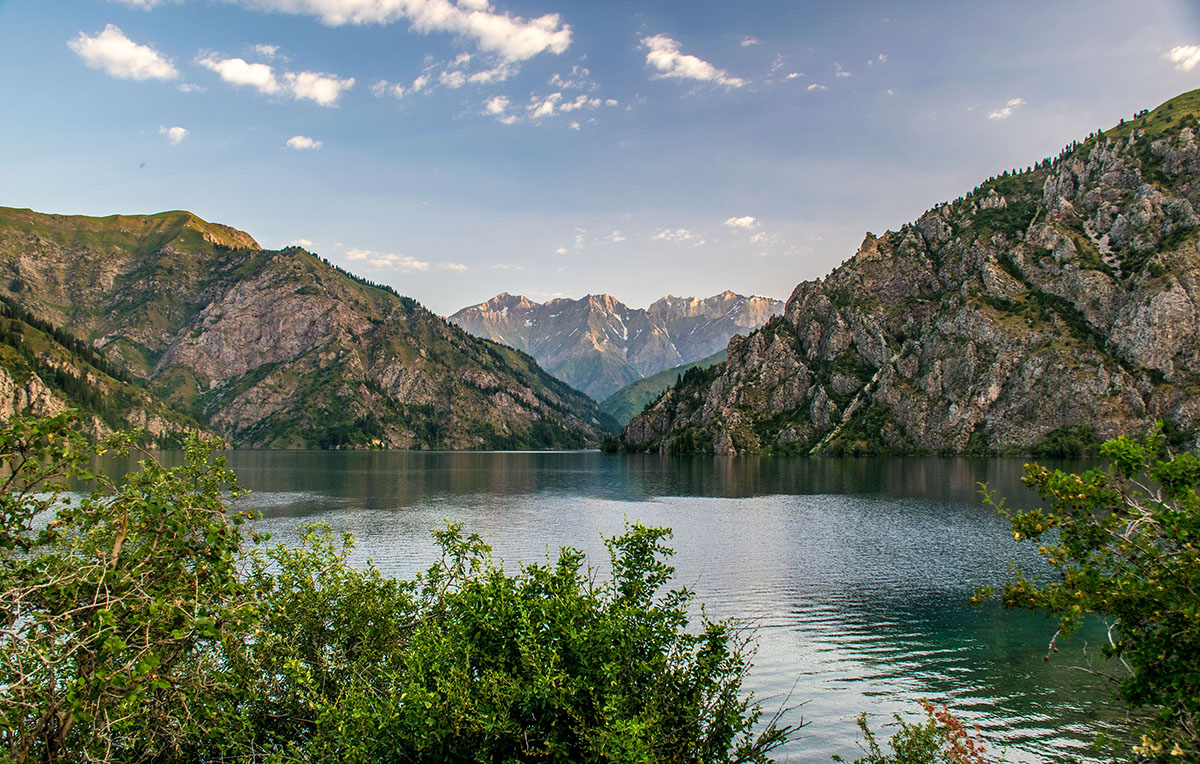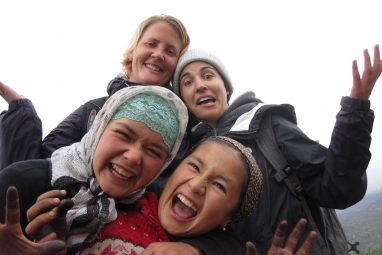
Ecotourism principles
Ecotourism principles
From its very beginnings, one of the main goals of the Kyrgyz Community Based Tourism Association (KCBTA) “Hospitality Kyrgyzstan” has been developing and promoting a wholesome and sustainable ecotourism model. That means tourism where the actions of tourists towards the regions visited are nature and ecosystem friendly. In order to popularize ecotourism and more careful treatment of the environment, the KCBTA has developed an Ecological Code, or an Ecotourism Organizations’ Codes of Conduct. Now the document is an integral part of any agreements on cooperation signed between the KCBTA and partner organizations.
ECOTOURISM ORGANIZATIONS’ CODES OF CONDUCT
The Kyrgyz Community Based Tourism Association “Hospitality Kyrgyzstan” has developed the following Ecotourism Organizations’ Codes of Conduct. These Codes of Conduct provide guidelines for all the tour operators and other ecotourism organizations operating in Kyrgyzstan.
NATURE CONSERVATION PRINCIPLES:
Awareness of the Impact on Natural Resources. Be aware of the actual and potential impact of tourism on natural resources and attempt to minimize this impact through one’s own policies and practices, including:
· Disposing of waste and sewage properly
· Reducing natural resource consumption by tourists
Supporting efforts to clean up waste and polluted areas. Find out about these efforts and support them by, for example, providing money, lobbying governments and businesses, contributing your time and that of your staff, and by encouraging tour clients to support them.
Using environmental-friendly vehicles. The transport you choose for your clients makes a difference – choose the means of transport that has the least environmental impact. Try to use non-motorized transport whenever possible.
Impact monitoring: Keep the number and behaviour of tours/travelers compatible with the fragility of visited environments and work with protected area managers, the Association’s partners and/or other local NGOs to implement impact monitoring plans when possible.

CULTURE CONSERVATION PRINCIPLES:
Supporting Authentic Cultural Exchanges. Be aware of the actual and potential impact of tourism on cultural heritage and attempt to minimize this impact through one’s own policies and practices.
Respecting Cultural Heritage. Respect the culture and customs of the people whose communities you visit, and make sure that your clients do so as well.
· Give all visitors a thorough cultural briefing before visiting local communities. Where possible hire local lecturers to conduct these briefings. Include information on local customs and traditions and on appropriate behaviour for tourists in the area. Use local “Codes for Tourists” if available.
· Ask permission to take photographs or videotape.
· Ensure that your clients respect religious ground, churches, cemeteries, and other sites with religious or cultural significance and that they do not remove any artifacts.
Respect historic sites and markers. Make sure that your clients do not remove any artifacts. If access to historic or archaeological sites is restricted, get permission before visiting. Ensure that your clients behave respectfully particularly if a site has religious significance.

Contact information
If you are interested in volunteering with one of the groups advertising a volunteers’ position, please contact the KCBTA main office at cbtnetworks@gmail.com for further information.
LOCAL COMMUNITIES DEVELOPMENT PRINCIPLES:
Partnership with Community-based Ecotourism groups: Supports community-based ecotourism groups in developing a sustainable business that contributes to conservation and community development. Subcontracts from small, community-based enterprises wherever possible and assists them in achieving the appropriate quality standards.
Where no community-based company is available, the tour operator directly employs people living in the areas being visited. Local community members may be employed to deliver all the services to clients, including administration, guiding, transport, meals, lodging and supplies.
Purchases Supplies from the Local Community: Create additional benefits to the local community by purchasing as many products and services as possible from the community being visited. Encourage your clients to buy locally made handicrafts and products made from wildlife by local people, so long as these products are not made from endangered species and their purchase does not violate the law.
Supports Community Development Financing: Contributes a proportion of net profits to community conservation and development funds, and/or makes a direct financial donation to the communities being visited. Follows protected area guidelines for entrance fees and concession permits and encourages customers to make contributions to support conservation and community development projects.
Accommodation options. Choose accommodation compatible with local traditions and that minimize negative environmental impact. Choose lodgings that have effective waste treatment systems, recycles and disposes of non-recyclable garbage appropriately. Where possible, choose accommodation owned, built, and staffed by local people.
Coordination with local communities. Coordinate with the communities that you will visit so that your visit is welcome and expected.
· Arrange visits to communities well in advance.
· Reconfirm your visit, preferably 24 hours in advance and be prepared to pay the community for costs associated with cancelled visits.
· Arrange with the community what you and your clients will do while there.
· Find out what size of group the community can welcome for the planned activities.
ECOTOURISM PROMOTION & EDUCATING PRINCIPLES:
Promoting Responsible Visitor Behaviour. Educate travelers before and during the trip on low impact travel and conservation compatible practices (including ecological and cultural sensitivity). Travellers should practice low impact travel and conservation compatible practices while travelling.
Contribution to Truthful Marketing of Eco-tourism: Partners of the Kyrgyz Community Based Tourism Association: tour operators, local communities, government partners and other NGOs to help market community-based eco-tourism enterprises. Include these enterprises in its brochures and itineraries.
Education of staff. Educate and brief the staff on this Codes of Conduct. Provide all staff with copies of the Codes of Conduct, and be sure that they are familiar with its contents. Include information about specific local requirements.
Monitoring of Codes usage. Ensure that your clients follow the Codes of Conduct. Enforce the Codes in a consistent way. Make sure that clients understand the responsibilities outlined in the Codes. Be prepared to use stricter rules when necessary.



